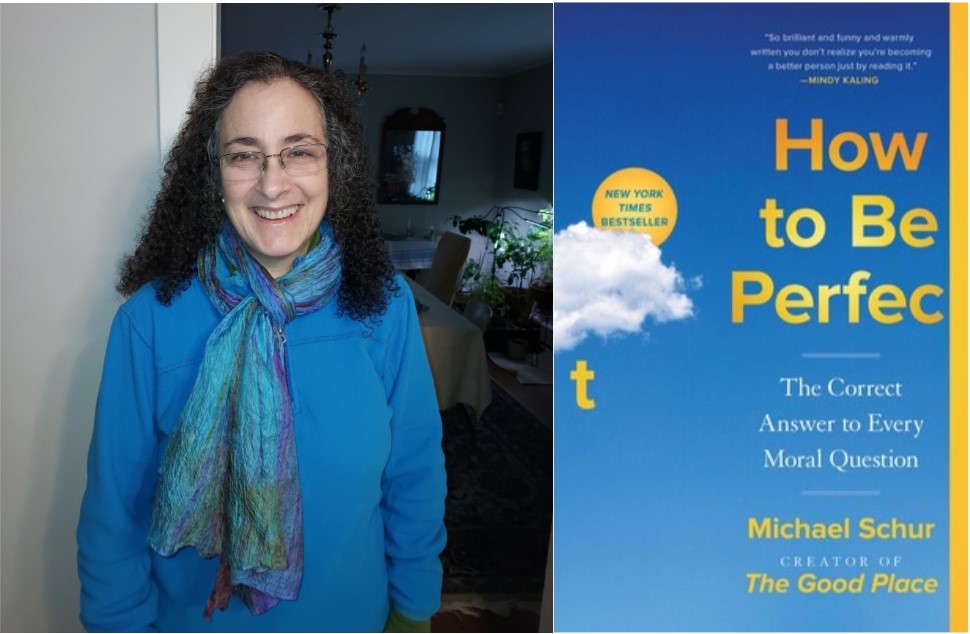Online Book Talk: Sacred Herbs of Yule and Christmas by Ellen Evert Hopman
Online Book Talk: Sacred Herbs of Yule and Christmas by Ellen Evert Hopman
Join us for an online book talk about "The Sacred...


Join us for an in-person discussion of How to be Perfect; we’ll explore the questions, themes, and ideas within the book.
About How to be Perfect: From the creator of The Good Place and the cocreator of Parks and Recreation, a hilarious, thought-provoking guide to living an ethical life, drawing on 2,400 years of deep thinking from around the world.
Most people think of themselves as “good,” but it’s not always easy to determine what’s “good” or “bad”—especially in a world filled with complicated choices and pitfalls and booby traps and bad advice. Fortunately, many smart philosophers have been pondering this conundrum for millennia and they have guidance for us. With bright wit and deep insight, How to Be Perfect explains concepts like deontology, utilitarianism, existentialism, ubuntu, and more so we can sound cool at parties and become better people.
Schur starts off with easy ethical questions like “Should I punch my friend in the face for no reason?” (No.) and works his way up to the most complex moral issues we all face. Such as: Can I still enjoy great art if it was created by terrible people? How much money should I give to charity? Why bother being good at all when there are no consequences for being bad? And much more. By the time the book is done, we’ll know exactly how to act in every conceivable situation, so as to produce a verifiably maximal amount of moral good. We will be perfect, and all our friends will be jealous. OK, not quite. Instead, we’ll gain fresh, funny, inspiring wisdom on the toughest issues we face every day.
Agnes B. Curry, Ph.D. is a Professor of philosophy and Director of the Core Curriculum. In all her teaching and research, Dr. Curry is concerned about drawing connections between philosophical ideas and our lives and individual experiences. She sees philosophical ideas embedded in all the things we do in everyday life, and she stresses how the first step in learning to think for oneself is to start recognizing how all the ideas around us are working to shape our experience without our realizing it. Dr. Curry came to philosophy through prior studies in music and science and she loves learning about all sorts of new things. She regularly teaches Discovering Philosophy, ethics courses including Food Ethics and Philosophy of Race, and Women Philosophers.
Copies of the book will be available at the reference desk.
This is one of the many programs we’re hosting during the ALA Human Origins Exhibit.